UC Santa Barbara Men’s Water Polo Looks to Shake Off Impact of NCAA Sanctions
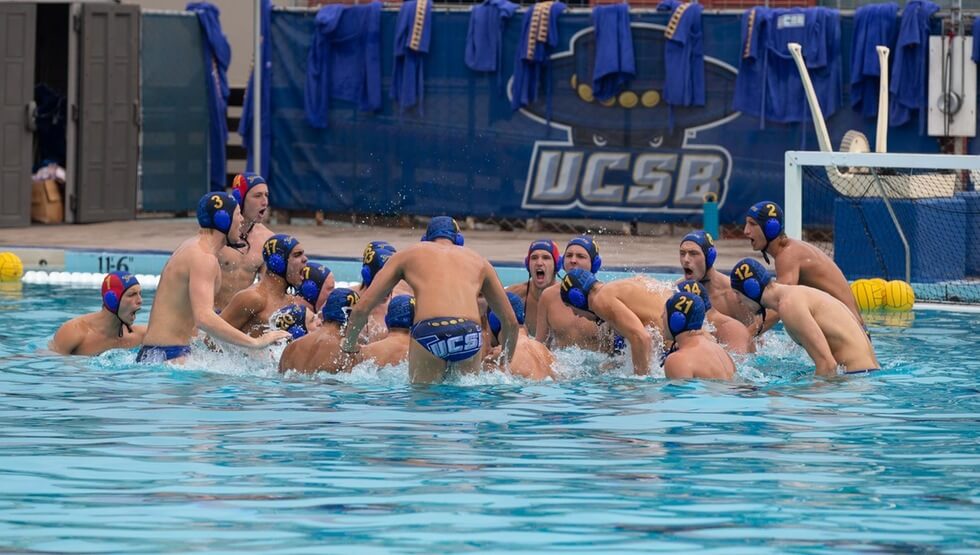
After a season of streaks, upsets, and tremendous promise, the UC Santa Barbara men’s water polo team now has a major distraction to overcome on the way to perhaps its first national championship tournament in three decades: the NCAA.
Sanctions that were leveled earlier this week have focused unwanted attention on a Gauchos program that has so far enjoyed a magical 2019 campaign, with a program record 15-match win streak, wins over Cal, Stanford and USC and a stint at the top of the national polls for the first time ever.
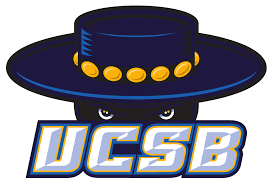 When the sanctions were revealed, a number of questions arose which were quickly answered by UCSB Head Coach Wolf Wigo. Perhaps the most pressing question is: who will be coaching for the rest of the season? As part of the penalties levied, both the head and assistant coaches will have to sit out 30% of the team’s matches.
When the sanctions were revealed, a number of questions arose which were quickly answered by UCSB Head Coach Wolf Wigo. Perhaps the most pressing question is: who will be coaching for the rest of the season? As part of the penalties levied, both the head and assistant coaches will have to sit out 30% of the team’s matches.
Wigo swatted that away a concern this penalty might impact this season. In an email to Swimming World, he wrote that the suspensions will take place at the start of next season, one after the other. And each coach will miss approximately seven to eight games.
In fact, the UCSB head coach was emphatic that this current season will not be affected at all, including a key match in San Jose today against Golden Coast Conference rival San Jose State. The Gauchos are 2-1 in conference play, with two more GCC matches to play—the game against the Spartans, and a season-ending contest on the road next week against Pepperdine. Winning both will likely make them the #2 seed behind Pacific when GCC tournament play begins on Friday, November 22 in Malibu.
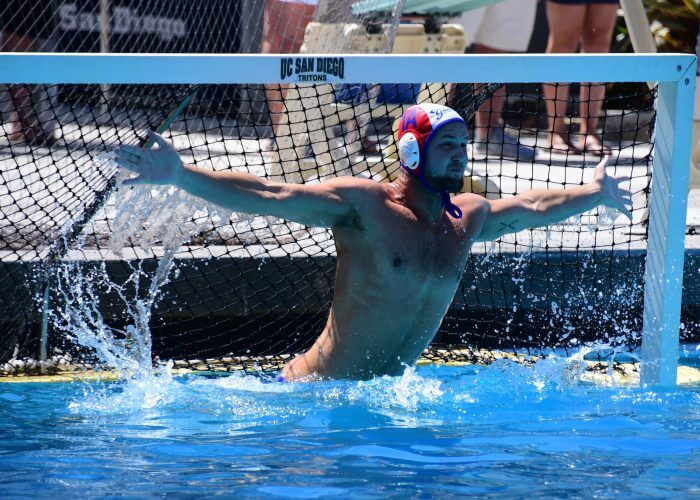
Danny Roland and his Gaucho teammates are unbowed in pursuit of success. Photo Courtesy: UCSB Athletics
Some of the finer details of the report include what penalties will be levied against specific players or past seasons. Wigo stated that there are no ineligible players on the current roster, and that no Gauchos have been ineligible to compete since 2017. Victories will be vacated, but they will be from three seasons ago, leaving this campaign — one of UCSB’s best since the team won an NCAA title forty years ago — intact.
[Remembering the Remarkable ’79 UCSB Gauchos—NCAA Men’s Water Polo Champs]
As to the NCAA report in general, which levied Level II sanctions against the program, it’s important to note that the investigators determined negligence rather than deceit, and commended both UCSB Athletics and Wigo’s club program, Santa Barbara Premier Water Polo, for cleaning up what the committee deemed to be carelessness and poor judgement.
The report was explicit that Wigo and his program were not looking to buck NCAA conventions.
“But these failings demonstrate that he did not meet his head coach responsibility; they do not demonstrate that he was willfully attempting to subvert NCAA employment compensation rules. Furthermore, although he conferred an advantage on the student-athletes by covering their housing costs, the institution stated that the same advantage could have been provided through other permissible means.
This admission is underscored by the improvements the club has made to its record-keeping practices since the events in this case, as well as the mutual efforts by the compliance staff and the head and assistant water polo coaches to improve their lines of communication The panel acknowledges the head water polo coach’s long history of compliance, but it is not enough to overcome the presumption of responsibility.”
It is also significant to recognize that the NCAA enforcement team alleged Coach Wigo had violated By-Law 10, which requires institutional staff members to conduct themselves in an ethical manner. In accordance with Bylaw 10.1 staff members must not knowingly involve themselves in offering or providing a prospective or enrolled student-athlete with an impermissible recruiting inducement or extra benefit.
But, the NCAA panel emphatically rejected that allegation:
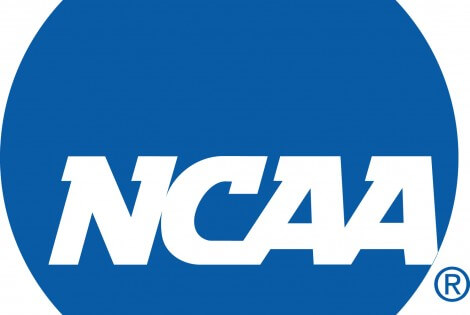
The amended NOA alleged that the head water polo coach violated Bylaw 10 unethical conduct legislation by knowingly arranging a recruiting inducement—housing—for student-athlete 1 and knowingly providing extra benefits in the form of improper compensation for student-athletes 1 and 2. The panel concludes that the facts do not support an unethical conduct violation because the head water polo coach did not willfully attempt to subvert NCAA recruiting or benefits legislation.
The head water polo coach’s conduct in this case does not rise to the level necessary to conclude that he acted unethically. His actions demonstrated carelessness toward rules compliance, to be sure. And he exercised poor judgment in how he handled student-athlete 1’s early arrival prior to enrollment and the compensation arrangements for both student-athletes. But nothing in the record or in the head coach’s statements at the hearing suggest that he was intentionally trying to skirt NCAA rules to provide the student-athletes with housing and excess compensation. Carelessness and poor judgment support the head coach responsibility violation; they do not support unethical conduct.
The NCAA manual is 443 pages long, and each year coaches in every NCAA sport must pass a 50-question test on its by-laws in order to be certified to recruit off campus. The exam is one hour long and is taken open book, with 80% or better being a passing grade. (Practice tests available online).
But, applying the rules day in and day out can be confusing. And new legislation is introduced each year that can render prior best practices illegal. Most university compliance departments have staff with legal training to help with interpretations and guidance of the coaching staff.
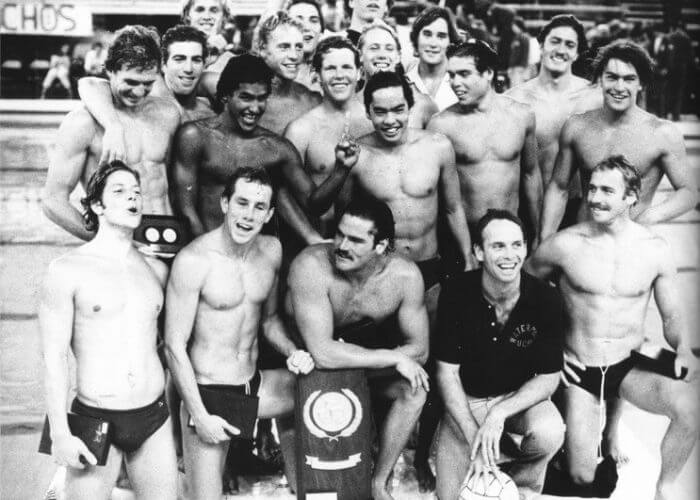
What it’s all about: NCAA hardware circa 1979. Photo Courtesy: UCSB Athletics
It’s clear in this case that the NCAA panel clearly made the distinction between blatant malfeasance and inadvertent infringement by Coach Wigo. It also revealed that the UCSB compliance department was caught off guard for not being aware that water polo student athletes were employed as coaches at the club owned by the Gaucho coaches. The compliance team and the coaches have made appropriate corrections, steering the program back into compliance.
While part of the NCAA punishment is public censure, probation, and the coaches scheduled suspensions looming in 2020, the majority of the penalties have been already served. The process took over two years to reach the announcement this week — which is what led to the unfortunate timing of a Gaucho team that already voluntarily sat out the post-season last year and is driving for success in the 2019 GCC tournament.
Given the success Wigo and his team have enjoyed thus far in building an 18-5 record, it’s obvious they are well equipped to weather this storm. That’s a credit to the coaching staff, the UCSB athletics administration, and the players — and should give Gaucho faithful confidence that this season’s magical ride will continue.
With reporting by Michael Randazzo




Your assessment of the NCAA’s report is quite kind but at least you provide a link to the full text: p. 15: “Over a period of two years, the head and assistant water polo coaches provided impermissible extra benefits in the form of improper employment compensation and pay for work not performed to two student-athletes who worked as coaches for their water polo club. The enforcement staff alleged that the violation was Level I. UCSB agreed that the violation occurred and was Level I.” The NCAA Committee agreed the violation occurred but decided it was Level II (contradicting their own staff and UCSB). You fail to mention that the coaches are precluded from recruiting. UCSB, a public university, is supposed to renew the contracts (year to year end in August) of coaches whose NCAA violations prevent them from actually doing their job? The NCAA message to UCSB is implicit–clean house.
Thanks for your comments: First, there is a distinction between the NCAA enforcement staff and the Committee on Infractions (COI). The COI members are not NCAA employees-they are Current and former Coaches and Athletic department staffers from around the country and are an independent body. The Enforcement staff performed the initial investigation and proposed a Level I violation, and the COI conducted the hearing and levied the punishment. The COI agreed the violations did occur but did not agree that the violations were Level I and reclassified them to Level II. Their rationale for this change was part of the article-and based on comparison to similar NCAA precedents. SW’s initial reporting listed the recruiting limitations in the show-cause penalty, which restricts all off-campus recruiting and reduced Official Visits during the 2 year show-cause period. We agree, these sanctions will likely impact the program by limiting recruiting activity and the negative publicity will have some impact in ways that will be difficult to quantify. University Coaches Contracts generally contain a clause which requires that the coaching staff comply with all NCAA/Conference/University regulations and when found in violation they are subject to disciplinary and corrective action or termination for significant or repetitive violations. Given this combined report also covered the Head track coach’s CARA violations, and that coach was subsequently terminated implies that the UCSB athletic administration elected not to dismiss the Water Polo Coaches. If they were inclined to make a change, it seems they would have done it prior to the start of the current season as they did with the Track coach. Some coaches work on year to year employment contracts. And many have agreements which span multiple years. So it’s impossible to speculate on the employment agreements between UCSB and their coaches without seeing them. It is safe to say that UCSB’s Athletic department will be more vigilant than ever before with all of its programs–and that is the intent of the NCAA in publishing the report. It creates a teachable moment for all 300 plus division I members, not just the institution in question.
The NCAA decision just came out. How UCSB reacts remains to be seen. For starters UCSB athlete’s precluded from 2018 post-season competition due to Wigo’s NCAA violations should receive a tuition credit. Let’s say you attend every lecture of an arduous class and then cannot take the final because the professor got caught plagiarizing the course readings. Not a good look from an academic perspective. A non-tenured professor would be removed for far less. UCSB fancies itself a leading light in the hallowed halls of academe. One would expect, after this NCAA decision, that a committee of the aforementioned professors will go to work on the athletic department with a pair of pliers and a blowtorch. Contract employees surviving first ever level 2 NCAA violations would be a dubious precedent to set. The victims in this sordid affair are the student athletes. Firing the coach before or in the middle of the season adds to the damage already inflicted by the athletic department and enhances their liability. You can sue for practically anything these days and this self-insured “business” admitted they cheated to their regulatory body–the NCAA. Some twelve to thirteen years and Wigo doesn’t understand NCAA rules?–I believe you coached for a time–this is not rocket science. UCSB stipulated that the violations were Level 1. Yes, the Committee pulled back to aggravated Level 2 but the message remains clear. When it comes to athletics UCSB does not care if coaches win–the school has only two NCAA titles in 75 years. The question now is do they care if the coach cheats?